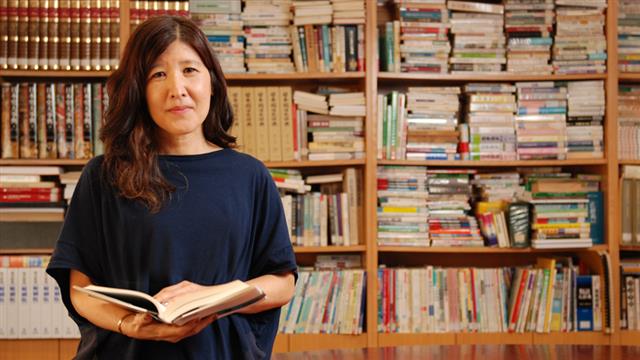Study shows women are increasingly independent in Hong Kong, Shanghai and Tokyo, but face an almost impossible task to mix money and marriage.
There's a revolution in the way women in particular are behaving, with many deferring marriage, according to new research by Lynne Nakano, the chairperson of the Department of Japanese Studies. That is causing significant, new-found stress as single women struggle to juggle their careers and their love lives.
Professor Nakano gathered her findings by conducting in-depth interviews with 100 single women in Hong Kong, Shanghai and Tokyo, with a roughly even split between each city. The interview subjects were selected through 'snowball sampling' in which contacts refer other potential interviewees. She questioned the single women about their attitudes to and experiences with lovers, marriage and work.
Despite each city being part of a relatively conservative society, each is also seeing major structural changes in behaviour. Those changes suggest that the typical definition of a family—a legal link between a heterosexual couple—excludes a large part of the population.
In Nakano's sample, nearly 40% of women in Hong Kong aged between 30 and 34 are still single. The figure in Tokyo is 34%. 'In a previous generation nearly all of these women would have been married and with children,' she says.
In previous generations, a woman's life revolved around the family. That didn't only involve childbearing and rearing—they were also expected to care for the elderly or any incapacitated relative or family member. But their role was relatively clear.
That's no longer the case. 'It's more interesting studying women because the main source of their identity is to care for a family,' Nakano explains. 'If they're not married and being mothers and caring for families, what makes their lives meaningful?'
The majority of women want to marry—in Tokyo, only one interviewee said she didn't plan to do so—but they are in less of a rush. Japanese culture used to compare women to Christmas cakes, which in Japan should be consumed before 25 December. Women were expected to marry before 25, after which their 'value' dropped.
Nakano's interviews found that Japanese women now consider their value in marriage markets to decline only after the age of 30. They also noted that many job advertisements in Japan stipulated that female applicants must be under 35, and older interview subjects said they believe they're not being considered for jobs because of their age.
Such attitudes demonstrate the central theme that Nakano's study examined: the fact that Asian women are now expected to compete in both the marriage and work markets at the same time, activities that can be mutually exclusive.
For instance, women with full-time jobs said they are reluctant to give them up, often believing they will only be offered part-time work if they leave their jobs to have children. But they are often still expected to raise children, which would necessitate such a break from the labour force.
The women Nakano interviewed demonstrated different attitudes based on age. Those below 30 typically felt extreme pressure to get married. 'At the moment, I feel that if I can't marry, I can't do anything,' a woman called Mari said. In their 30s, they are more open to unconventional relationships that might be long-distance, or that are more casual than marriage. By their 40s, the women had often given up on the idea of getting married. 'We don't need men, but we do need work,' 40-year-old Osaka native Sana said.
It is not only rising wages that explain the shift in attitude, Nakano says. The fact that one in four marriages in Japan ends in divorce, for instance, means that marriage is not the safety net that it once was. In all three cities, the average age of marriage is 29.
There is still very heavy pressure to marry in Shanghai, and until recently almost every woman wed at a young age. This creates significant stress given the structure of the lives of modern Chinese women.
'A woman should get a good education, should get a good job, should find her partner by about 25, and get married by 27,' Nakano says. 'But this is very difficult to accomplish because women are expected to be developing their careers in the same time period, and dating is not encouraged at university.'
In Tokyo, the employment system is very rigid, making it extremely hard for women to pursue both a career and have kids. But Japan still has a rate of reproduction that is not enough to sustain its population.
Conservative politicians in particular are pushing females to have children. 'Women are expected to get married as a citizen's duty,' Nakano notes. 'There's a lot of media criticism of single women: why are you so selfish and not marrying?'
A societal shift will eventually happen, Nakano believes. But there is currently still a lot of criticism of single women. In Shanghai and Hong Kong they are often called 'leftovers' while in Japan they are sometimes referred to as 'parasite singles' or 'loser dogs.'
'The way that these societies are structured is disadvantageous to women,' Nakano says. 'When women are expected to compete in a marriage market and a corporate market, they can't succeed at both.'


